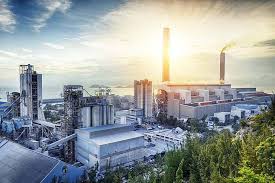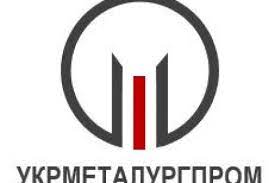
Ukrainian enterprises in January-April 2024 increased imports of zinc and zinc products – by 59.9%, up to $17.217 mln (in April – $5.357 mln). Exports of zinc for four months of this year amounted to $73 thousand (in April – $29 thousand), while in January-April 2023 it amounted to $48 thousand.
Zinc exports abroad in 2023 amounted to $130 thou. against $1.331 mln in 2022. Zinc exports for 2022 totaled $1.331 million, compared to $550 thousand in 2021. Exports of tin and tin products totaled $424 thousand in 2022, compared to $346 thousand in the previous year.
Zinc is used to protect steel from corrosion, in the production of zinc whitewash, in the metallurgical industry in the production of zinc sheets, and in the manufacture of foundry lead and copper-zinc alloys. It is also used as a material for the negative electrode in chemical current sources.

Ukrainian enterprises in January-April 2024, according to customs statistics, increased imports of nickel and products by 60.1% compared to the same period of 2023 – up to $8.484 million (in April – $787 thousand million).
Ukraine in 2023 reduced imports of nickel and nickel products by 74.2% y-o-y in 2022 – to $15.391 mln. Ukraine in 2022 reduced imports of nickel and nickel products by 49.9% y-o-y in 2021 – to $59.754 mln.
The main area of nickel application is metallurgy. It is used in the production of high-alloy stainless steels. By adding nickel to the iron melt, metallurgists obtain strong and ductile alloys that are highly resistant to corrosion and high temperatures.

Ukrainian metallurgical enterprises according to the results of work in January-February of the current year increased production of total rolled products, according to operational data, by 52.5% compared to the same period last year – up to 900 thousand tons from 590 thousand tons.
According to the information of Ukrmetallurgprom association on Friday, during this period steelmaking increased by 52% against January-February-2023 – up to 1.076 million tons from 708 thousand tons.
Iron smelting increased by 42.5% to 1.050 million tons from 737,000 tons.
As reported, in January-2024 increased output of total rolled products by 75.9% y-o-y to 453,000 tons from 257,000 tons, steel by 91.6% to 544,000 tons from 284,000 tons, pig iron by 44.5% to 555,000 tons from 384,000 tons.
Ukraine in 2023 increased production of total rolled products by 0.4% compared to 2022 – to 5.372 million tons, but decreased steel production by 0.6% – to 6.228 million tons, pig iron by 6.1% – to 6.003 million tons.
Ukraine in 2022 reduced production of total rolled products by 72% compared to 2021 – to 5.350 million tons, steel by 70.7% – to 6.263 million tons, pig iron by 69.8% – to 6.391 million tons.
For 2021, 21.165 million tons of pig iron (103.6% to 2020), 21.366 million tons of steel (103.6%), 19.079 million tons of rolled products (103.5%) were produced.

At a meeting on Tuesday, the Government of Ukraine decided to transfer more than 800 enterprises with assets worth UAH 45 billion to the State Property Fund, First Deputy Economy Minister Denis Kudin said.
“This is the largest transfer of enterprises in the term of this government. In fact, now only assets in the field of energy, infrastructure, defense industry, culture and standardization and metrology remain subordinate to the ministries,” he wrote on Facebook.
According to available information, in this list, in particular, “Artyomsol”, “Konyarstvo of Ukraine”, NSC “Olympic”, “Odessa Film Studio”, coal enterprises.
Kudin clarified that so far the Fund has not been transferred to enterprises in respect of which restructuring or transformation to another organizational form is underway: for example, from a state enterprise to a state institution or state organization, or companies in a state of liquidation, or perform service functions.
“The next step is for the State Property Fund. We expect that by mid-November the Fund will be able to actually start working as a management body for these and other enterprises, regarding which the decision to transfer was made earlier,” said the first deputy head of the Ministry of Economy, who was previously responsible for managing state assets in the Fund .
Kudin recalled that the goal of the reform is to reduce the size of the state in the economy and stimulate private entrepreneurial initiative. According to him, the Fund will make a decision on privatization of some enterprises, while others will be consolidated into asset management holdings and will bring dividends to the budget.
The State Property Fund (SPF) of Ukraine would like to become a single manager of all state property in the country, while it is currently distributed among 96 different state departments, Rustem Umerov, appointed this week as its head, said.
Speaking at the Rebuilding Ukraine forum organized by UkraineInvest on Thursday, he expressed the opinion that such centralization would improve the efficiency of state property management.
The new head of the SPF, Rustem Umerov, appointed by the Rada in early September, previously announced plans to create a Sovereign Fund, which would unite the main state enterprises, as well as the intention to make the SPF the sole manager of all state property in the country, while currently it is distributed between 96 different government departments.

As of July 15, the number of enterprises relocated to safe regions under the relocation program reached 678, while at the end of May there were 601, the Ministry of Economy reported on Saturday.
“Of these, 68% (467 enterprises) have already resumed their work,” the ministry said, which is also 77 more than at the end of May.
According to the Ministry of Economy, a total of 1,732 companies have applied through the digital engagement platform to help with relocation.
Among the enterprises that have already resumed their activities in a new location, the largest share is made up of enterprises in wholesale and retail trade, repair of vehicles and motorcycles (38.7%), processing industry (33.1%), information and telecommunications (5.9%), professional, scientific and technical activities (5.3%).
Most companies have moved their facilities to Lviv (24.6% of relocated enterprises), Zakarpattia (16.1%) and Chernivtsi (11.4%) regions, the agency said.
As reported, the program to move Ukrainian production from the zone of active hostilities started in mid-March. According to the head of the parliamentary committee on finance, tax and customs policy of Ukraine, Danila Getmantsev, as of March 27, 1,120 applications were received under the evacuation program, of which 368 were transferred for transportation. By this date, the number of displaced enterprises under the evacuation program has reached 89, of which 47 have already resumed work in a new location.
The Ministry of Economy then updated the data as of April 5: the number of applications for relocation increased to 1424, relocated enterprises – up to 178, resumed work – up to 67.
According to the Ministry of Economy on May 12, the number of relocated enterprises increased to 510, resumed work – up to 303, so the topic of relocation and filing applications for it has slowed down recently.